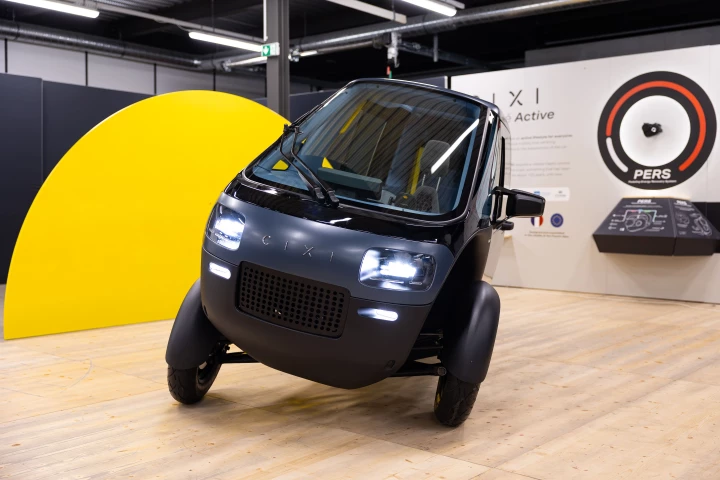Lithuania's Blokas Labs has launched a project that's described as an ultra-low latency soundcard and MIDI interface for the Raspberry Pi, and is designed as a one stop shop for audio tinkerers and music producers. The pisound board features hi-res stereo input and output jacks, MIDI ports and a multi-purpose button that means peripherals don't need to be connected for the system to work.
Prior to launching on Indiegogo this week, the pisound project team has run through six hardware version over the last 18 months before settling on the current design. It can be connected to all manner of audio gear, ranging from an electric guitar to a hardware synthesizer to a CD player, to make the Pi a musical instrument, create a pocket-sized recording studio or network-enabled audio player, or setup your own internet radio broadcast.

The 100 x 56 mm (3.9 x 2.2 in) pisound slots right onto the Pi's 40 pin GPIO header (spacers will be provided to help secure it in place) and leeches the power it needs from the host board. It rocks Burr-Brown OPA4134 op-amps, PCM1804 analog-to-digital and PCM5102A digital-to-analog conversion for 24-bit/192 kHz audio resolution and outperforms many home hi-fi setups in the total harmonic distortion department, flying in at less than 0.05 percent.
In addition to 0.25-in stereo input and output jacks, the add-on board also features 5-pin MIDI DIN input/output for connecting music-making hardware, and supports MIDI over USB. Users can even use MIDI over Wi-Fi. Blokas says that unlike some other MIDI solutions for the Pi, the pisound uses high speed Serial Peripheral Interface and a dedicated microcontroller to transform data to MIDI.
There's a multi-purpose button to the top that can be set to do the user's bidding, and potentially means that the board can be used without needing to connect a monitor, keyboard or mouse to the Pi. It can, for example, be used to open and close Pure Data patches, shut down the Raspberry Pi, eject a USB thumbdrive or activate a Wi-Fi hotspot. And to the left of The Button are two wide-range gain knobs to control input device levels.

The pisound is reported compatible with many Linux operating systems, including Raspbian, ArchLinux, Ubuntu Mate and Pure Data, and should come up in any Linux/MIDI audio software as an ALSA Raw MIDI device.
Users not fond of the naked, exposed look can head to the company's GitHub page and download files necessary for 3D printing their own enclosure – though cardboard style cases are also being explored as an option.
The pisound's Indiegogo campaign has already met its funding target with about a month left to run. Pledges start at US$89 for the pisound – backers will need their own Raspberry Pi – and if all goes as planned, shipping is estimated to start in June.
A project overview can be seen in the pitch video below.
Sources: Blokas Labs, Indiegogo













